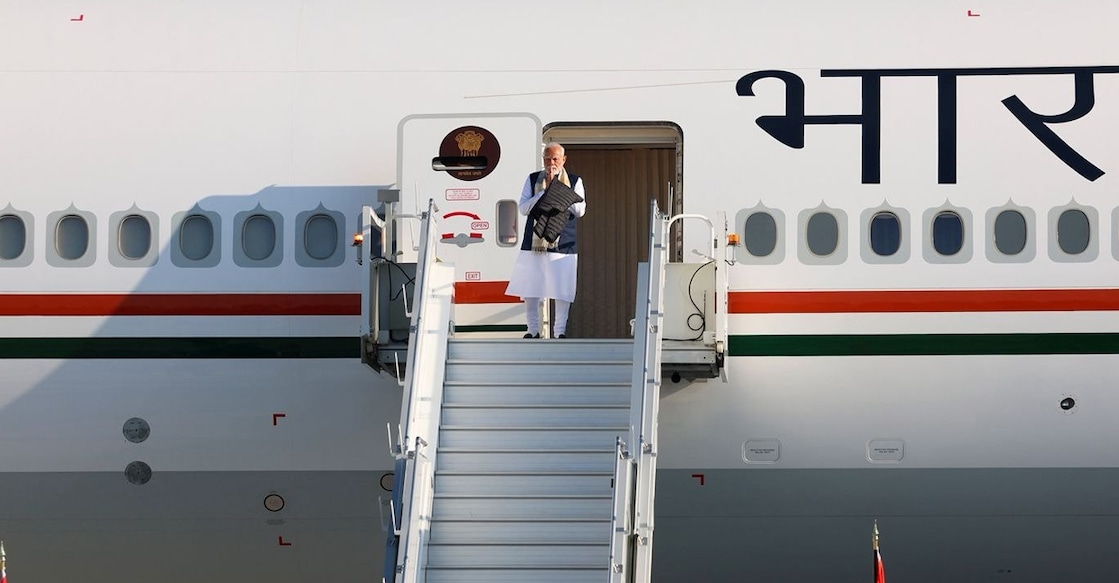PM Modi arrives in Canada for G7 summit as Ottawa seeks to mend ties with India

Mail This Article
Prime Minister Narendra Modi arrived in Canada to attend the G7 Summit in Kananaskis, marking his first visit to the country in a decade. During the event, Modi will hold meetings with various global leaders.
"Landed in Calgary, Canada, to take part in the G7 Summit. Will be meeting various leaders at the Summit and sharing my thoughts on important global issues. Will also be emphasising the priorities of the Global South," the Prime Minister said in a post on X.
Modi, who is on a three-nation tour, arrived in Canada from Cyprus at the invitation of Canadian Prime Minister Mark Carney. The Kananaskis gathering on June 16-17 is the Prime Minister's 6th consecutive participation in the G7 Summit.
"At the Summit, the Prime Minister will exchange views with leaders of G-7 countries, other invited outreach countries and Heads of International Organisations on crucial global issues, including energy security, technology and innovation, particularly the AI-energy nexus and Quantum-related issues," the Ministry of External Affairs earlier said.
Carney's invitation to Modi to attend the G7 Summit signalled the new government's intent to repair the ties with New Delhi that plummeted to an all-time low over the killing of pro-Khalistani separatist Hardeep Singh Nijjar.
In October last year, India recalled its high commissioner and five other diplomats after Ottawa attempted to link them to the Nijjar case. India also expelled an equal number of Canadian diplomats. India had accused Justin Trudeau's government of allowing pro-Khalistani elements to operate from Canadian soil.
After Trudeau's exit, New Delhi said it hoped to rebuild ties with Canada based on "mutual trust and sensitivity". In the last few months, the security officials of India and Canada resumed contact, and both sides were looking at the possibility of appointing new high commissioners.

